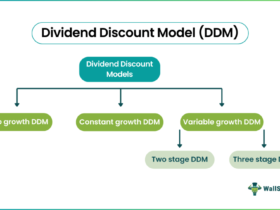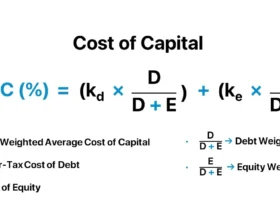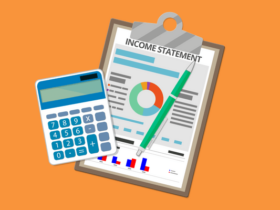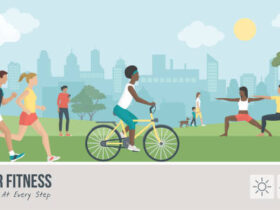1. Why Learning to Say “No” Matters
As a new graduate entering the financial industry, the pressure to impress your managers and prove yourself can be intense. You may feel tempted to say “yes” to every request, project, or favor that comes your way. While this eagerness is understandable, constantly taking on more than you can handle often leads to stress, burnout, and lower productivity.
Saying “no” is not about rejecting opportunities—it’s about prioritizing tasks that align with your goals and ensuring you have the time and energy to deliver high-quality work. When you set boundaries early, you gain control over your schedule and avoid unnecessary stress, enabling you to perform better while maintaining your well-being.
2. The Consequences of Always Saying “Yes”
Agreeing to every task or request might seem like the fastest way to gain recognition, but in reality, it can have significant downsides:
Overcommitment Leads to Burnout
Taking on too many responsibilities leaves little time for rest or recovery. Financial institutions are fast-paced and demanding, and if you overextend yourself, you’ll quickly feel exhausted and overwhelmed.
Lower Quality of Work
When you spread yourself too thin, your focus and attention are divided. Rushing to meet multiple deadlines can result in mistakes or incomplete tasks, which can harm your reputation and performance.
Losing Sight of Priorities
Not every request or project will align with your career goals. By saying “yes” to everything, you may find yourself distracted from tasks that are more meaningful or beneficial to your growth.
Recognizing these consequences is the first step in understanding the importance of setting boundaries and learning to say “no” when necessary.
3. How to Say “No” Effectively
For many new graduates, saying “no” can feel uncomfortable or intimidating. You may worry about appearing uncooperative or unmotivated. However, when done respectfully, saying “no” shows maturity, professionalism, and self-awareness. Here’s how you can say “no” effectively:
Be Honest and Clear
When you need to decline a request, keep your response polite but firm. For example:
“Thank you for considering me for this project, but I’m currently focused on completing my assigned tasks. I wouldn’t be able to give this the attention it deserves.”
Provide Alternatives
If possible, suggest a solution or alternative approach to show your willingness to help. For example:
“I can’t take on this task right now, but I’d be happy to assist next week, or perhaps [name] could step in to help.”
Focus on Priorities
Frame your response by emphasizing your current workload or responsibilities. This shows that you are being professional and realistic about your limits. For example:
“I need to focus on meeting the deadline for my current project. Let’s revisit this once I have more bandwidth.”
Practice Confidence
It’s natural to feel nervous at first, but practice will make saying “no” easier. Start with small tasks and gradually build your confidence. Remember, protecting your time is not selfish—it’s necessary for your long-term success.
4. When to Say “No” and When to Say “Yes”
Knowing when to say “no” is as important as knowing when to say “yes.” Here’s how to decide:
Say “No” When:
- You already have a full workload, and adding more would compromise the quality of your work.
- The task doesn’t align with your professional goals or priorities.
- Taking on the task would interfere with your well-being, personal time, or work-life balance.
Say “Yes” When:
- The task aligns with your career development or allows you to learn new skills.
- You have the time and capacity to contribute without overwhelming yourself.
- The opportunity helps you build relationships, grow professionally, or demonstrate your strengths.
By learning to evaluate tasks before committing, you can make informed decisions that support both your personal growth and professional success.
5. The Benefits of Saying “No”
Saying “no” can feel empowering once you realize the positive impact it has on your life and work. Here are the key benefits:
Reduced Stress and Burnout
By managing your workload effectively, you avoid overcommitment and leave space for rest and recovery. This helps you maintain your mental and physical well-being.
Higher Quality of Work
Focusing on fewer tasks allows you to deliver better results. When you’re not overwhelmed, you can dedicate more time and attention to producing high-quality work.
Improved Work-Life Balance
Saying “no” frees up time for personal activities, hobbies, and relationships. This balance is essential for long-term success and happiness.
Prioritizing tasks that align with your career goals ensures that you are focusing on what matters most. Colleagues and managers will respect your ability to set boundaries and prioritize effectively.
6. Tips for Practicing Saying “No”
If you’re new to setting boundaries, these tips can help you build the habit:
- Start Small: Practice saying “no” to minor tasks or requests, such as attending a meeting that isn’t relevant to your work.
- Prepare Ahead: Anticipate situations where you might need to say “no” and prepare polite, confident responses in advance.
- Reflect on Your Priorities: Before accepting new tasks, take a moment to evaluate whether they align with your goals and workload.
- Seek Support: Talk to a mentor or manager if you’re unsure about how to handle certain requests. They can guide you in setting realistic expectations.
Final Thoughts
Learning to say “no” is one of the most important skills for new graduates starting their careers in financial institutions. It allows you to set healthy boundaries, reduce stress, and focus on tasks that truly matter. Remember, saying “no” doesn’t mean you’re not hardworking or committed—it means you value your time, energy, and well-being.
Start small, practice regularly, and watch how this simple skill transforms your work-life balance and boosts your confidence. By learning to say “no” when needed, you’ll not only protect yourself from burnout but also create space to thrive both personally and professionally.
Take the first step today: Reflect on your priorities, practice saying “no,” and empower yourself to achieve success on your own terms.

























Oh, how true! Saying ‘no’ is like a gentle breeze that clears the clutter in our lives. I often felt lost in endless tasks, but now I see the beauty in setting boundaries. Thank you for this wonderful guidance!
This article is like a gentle whisper, reminding us that it’s okay to protect our time. Saying ‘no’ feels like a shield against the storm of expectations. It’s beautiful to think that by embracing this simple word, we can find peace and joy in our work. Thank you for sharing such wisdom!
This article is okay. I think it is important to know how to say no sometimes. It helps to keep stress down.
This article speaks to my heart! Learning to say ‘no’ feels like finding a hidden treasure. It’s not just about work; it’s about valuing myself and my time. I will cherish this advice and use it to shine brighter!
Wow, what a revolutionary idea! Who knew that saying ‘no’ could be so life-changing? Next thing you know, they’ll tell us to breathe too!
Your article helped me a lot, is there any more related content? Thanks!
Thanks for sharing. I read many of your blog posts, cool, your blog is very good.
I don’t think the title of your article matches the content lol. Just kidding, mainly because I had some doubts after reading the article.
Can you be more specific about the content of your article? After reading it, I still have some doubts. Hope you can help me.
Your point of view caught my eye and was very interesting. Thanks. I have a question for you.
Well-written and informative. I appreciate the depth of your analysis.
Very informative post, thank you for sharing!
Such a useful guide. Bookmarking this for later!
Great perspective. I hadn’t thought about it that way!
Thanks for breaking this down so simply!
Your point of view caught my eye and was very interesting. Thanks. I have a question for you.
Your content never disappoints. Keep it up!
Short but packed with value. Love it!
Can’t wait to read more posts like this. Subscribed!
RealestAI redefines how people explore real estate by combining smart technology with local expertise. Our AI-driven engine helps you discover the best property opportunities in high-demand areas like Sunny Isles Beach, Downtown Miami, North Bay Village, and North Port. Whether you’re a first-time buyer, investor, or international client looking for homes in Florida, New York, California, Virginia, or Russia, our platform offers unmatched convenience and precision. Get personalized recommendations, up-to-date pricing trends, neighborhood analytics, and AI-matched listings—instantly. From luxury condos on Collins Avenue to peaceful family homes in Vienna, Virginia, RealestAI brings you closer to your ideal property. With real estate markets evolving rapidly, our intelligent tools ensure you’re always a step ahead, whether you’re buying, selling, or researching. Experience the next generation of property search with RealestAI—where smart meets real estate.
Great post! I really enjoyed reading this and learned a lot. Thanks for sharing!
This is exactly what I was looking for—thanks for the helpful tips!
Phim sex clip sex Việt Nam
Very well written. Looking forward to more posts like this!
Interesting perspective! It gave me a new way of thinking about this topic.
Thanks for the valuable information. It was easy to understand and super useful.
I love how you explained this so clearly. Subscribed for more!
This post really resonated with me. Appreciate your honesty and insights.
Great post! I really enjoyed reading this.
Very informative, thanks for sharing!
I never thought about it that way—thanks for the insight!
This was exactly what I was looking for!
Phim sex clip sex Việt Nam
Get ready to elevate your betting experience with an exclusive 1xBet promo code! Whether you’re from Bangladesh, Pakistan, India, Nepal, Sri Lanka, Nigeria, Egypt, or the Philippines, you can unlock amazing rewards like free bets, no deposit bonuses, and free spins using the latest 1xBet promo codes today. New users can enjoy a special registration promo code that boosts your first deposit or even gives you a chance to play risk-free. Looking for a Bangladesh 1xBet promo code or a 1xBet promo code India for the app? We’ve got it all here, updated daily. Don’t miss your chance to grab a 1xBet official promo code, win big, and make the most out of your betting journey. Claim your 1xBet free promo code today and start winning smarter with bigger bonuses, free spins, and more exclusive offers worldwide! No matter where you are, finding the right 1xBet promo code today means unlocking bigger chances to win, with offers perfectly tailored for players across Bangladesh, Pakistan, India, Nepal, Sri Lanka, Nigeria, Egypt, and the Philippines.
Phim sex clip sex Việt Nam
Interesting perspective—thanks for making me think.
This is so helpful. Looking forward to your next post!
Great post! I really enjoyed your perspective on this topic.
Can you be more specific about the content of your article? After reading it, I still have some doubts. Hope you can help me.
I don’t think the title of your article matches the content lol. Just kidding, mainly because I had some doubts after reading the article.
Thank you for your sharing. I am worried that I lack creative ideas. It is your article that makes me full of hope. Thank you. But, I have a question, can you help me?
Can you be more specific about the content of your article? After reading it, I still have some doubts. Hope you can help me.
Your article helped me a lot, is there any more related content? Thanks!
Thank you for your sharing. I am worried that I lack creative ideas. It is your article that makes me full of hope. Thank you. But, I have a question, can you help me?
Thank you for your sharing. I am worried that I lack creative ideas. It is your article that makes me full of hope. Thank you. But, I have a question, can you help me?
Your point of view caught my eye and was very interesting. Thanks. I have a question for you.
Your point of view caught my eye and was very interesting. Thanks. I have a question for you.
Can you be more specific about the content of your article? After reading it, I still have some doubts. Hope you can help me.
Thank you for your sharing. I am worried that I lack creative ideas. It is your article that makes me full of hope. Thank you. But, I have a question, can you help me? https://www.binance.info/sk/register-person?ref=OMM3XK51
I don’t think the title of your article matches the content lol. Just kidding, mainly because I had some doubts after reading the article.
I have been surfing on-line greater than 3 hours lately, but I never discovered any attention-grabbing article like yours. It is pretty worth enough for me. In my opinion, if all website owners and bloggers made excellent content material as you did, the web might be much more helpful than ever before.
I love your writing style really loving this site.
**mind vault**
mind vault is a premium cognitive support formula created for adults 45+. It’s thoughtfully designed to help maintain clear thinking
**mind vault**
mind vault is a premium cognitive support formula created for adults 45+. It’s thoughtfully designed to help maintain clear thinking
Appreciating the commitment you put into your blog and detailed information you provide. It’s nice to come across a blog every once in a while that isn’t the same outdated rehashed material. Wonderful read! I’ve bookmarked your site and I’m adding your RSS feeds to my Google account.